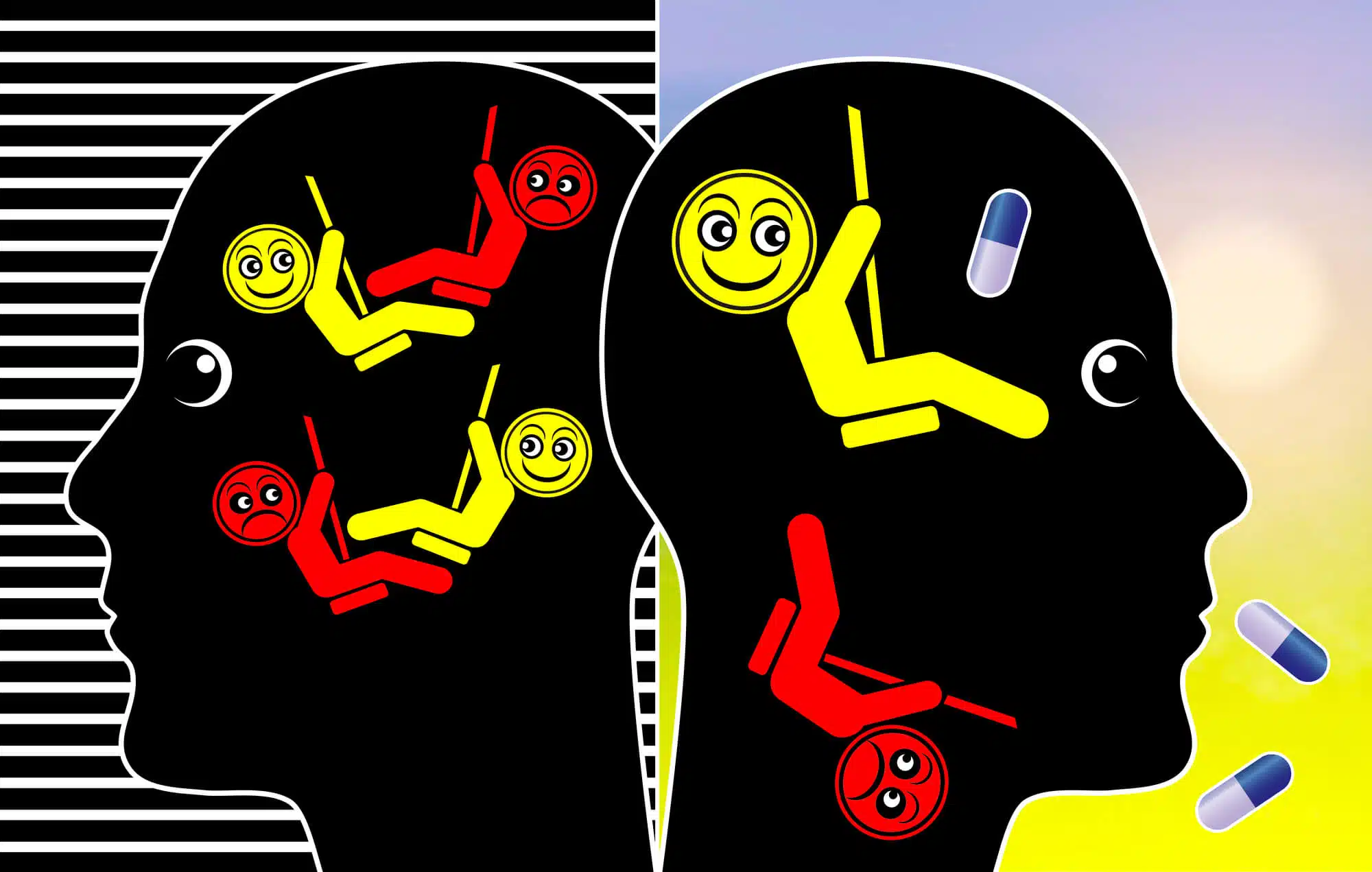One of the most common treatments today is the drug lithium - a drug to which only about a third of patients respond. The research aims to understand what causes this

With the help of a simple blood test, it is possible to identify people dealing with bipolar disorder (or as it was formerly known, manic-depressive disorder) and to predict the effectiveness of the lithium drug given to sufferers of this disorder, according to a new study conducted at the university and published in the prestigious journalMolecular Psychiatry from Nature. "The research findings allow us for the first time, within a short period of a few days and at a relatively low cost, to know with the help of a blood test whether a subject suffers from bipolar disorder. In addition, we can predict the effectiveness of the lithium drug given to those dealing with bipolar disorder and create a personal adjustment of the drug," said Dr. Shani Stern from the university, the study's editor.
Bipolar disorder, better known by its former name of manic depression, is a chronic mental disorder characterized by sharp changes in mood ranging from extreme joy to sadness and depression. The prevalence of the disorder among the adult population in the world ranges from 1% to 3%, with the average age at which the disorder breaks out being 19 years. Today, an assessment of the level of bipolar disorder is carried out by a specialist in the field of psychiatry and includes questions designed to determine whether the patient suffers from bipolar disorder or not, and what is the most effective treatment for him, when one of the most common treatments today is lithium medicine - a medicine to which only About a third of the patients. According to Dr. Stern, since there are many similarities between mania-depression and other disorders, for example schizophrenia, there is a fear of misdiagnosis, at least in the early stages. Beyond that, today there is no way to know whether the lithium drug will help the patient or not.
In the current study, Dr. Stern and the research team, which included research students Liron Mizrahi and Ashwani Choudhary from the Sagol Department of Neurobiology at the university, in collaboration with Dalhousie University and the Salk Institute, asked whether it is possible to use a blood test to identify a person suffering from bipolar disorder on the one hand and also to predict the effectiveness The lithium drug. In the study, cells from three different groups in the population were tested: people who do not suffer from bipolar disorder, people who suffer from bipolar disorder who respond to the lithium drug, and those who suffer from bipolar disorder but do not respond to the drug.
In the first phase of the study, white blood cells isolated from all subjects were tested, a cell culture that can be maintained for a long time by infecting the cells with the EBV virus, the virus that causes the kissing disease. In the second step, the researchers extracted RNA from the cells to understand which genes are expressed in each population group in order to find genes that are expressed differently in each group.
The findings show that 80% of the differences in gene expression are related to the expression of immunoglobulins, which are the main components of the immune system. "The main meaning of this finding is that the white blood cells of people suffering from bipolar disorder have a change in the level of receptors for antibodies and hence they are probably more vulnerable to diseases. It is known that there is a correlation between various psychiatric disorders and comorbidity," said Dr. Stern.
After the biological findings, the researchers used a computational model based on artificial intelligence consisting of neural networks developed in Dr. Stern's laboratory to confirm the findings. In addition, the researchers used cells from other laboratories in which the same biological processes were carried out as conducted in the current study in order to prove that the computational model also works in cells sampled in different laboratories and with different work methods.
The findings of the mathematical model were able to predict with an accuracy level of over 90% whether the subject suffers from bipolar disorder and whether he responds to the lithium medication. "With the help of this method, it is possible to save those dealing with mental problems many months of suffering and to match them with the appropriate medicine," said Dr. Stern.
More of the topic in Hayadan:
- Dipolar disorder at the nanometer level
- Researchers have discovered a fetal source of mood swings and bipolar disorder
- Next-generation lithium batteries: longer duration of activity, less charging time
- IBM scientists have set a new world record for calculation speed using a frozen chip
- The car of the future will repair itself
.
